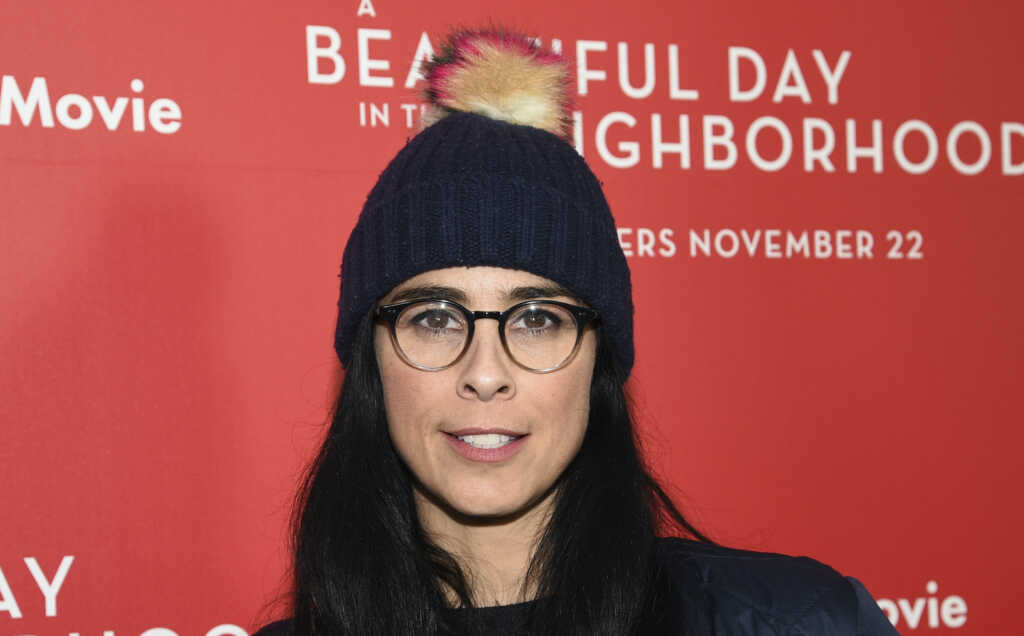Comedian Sarah Silverman is calling out her fellow progressives for their obsession with cancel culture, which she argued offers no “path to redemption.”
“In this cancel culture, and we all know what I’m talking about, whether you think there is one or there isn’t one or where you stand on it, and there’s a lot of gray matter there, but without a path to redemption, when you take someone, you found a tweet they wrote seven years ago or a thing that they said, and you expose it and you say, this person should be no more, banish them forever,” she explained on a recent episode of her eponymously named podcast. “They’re going to find someplace where they are accepted and it’s not going to be with progressives, which ironically means to be changed, progress.”
Silverman recalled a friend who was, at one point, embraced by neo-Nazis because he couldn’t find love or support from anyone else.
“If we don’t give these people a path to redemption, then they’re going to go where they are accepted,” the comedian said. “I think there should be some kind of path. Do we want people to be changed? Or do we want them to stay the same to freeze in a moment we found on the internet from 12 years ago?”
She also lambasted what she calls “righteousness porn,” which she described as people attacking those with whom they disagree in order to “point to ourselves as right.”
What else?
The co-hosts of ABC’s “The View” talked about Silverman’s comments this week. During their discussion, everyone except co-host Sunny Hostin agreed cancel culture is a problem. Hostin, for her part, said people deserve to be shunned from society for past errors.
Gadfly journalist Bari Weiss, who has covered cancel culture extensively, said she believes in “giving people second chances” and that “no one should be hung or have their reputation destroyed or lose their job because of a mistake or liking a bad tweet.”
“I think oftentimes when we talk about cancel culture, people think about celebrities who have gotten in trouble, people who are famous, people that, frankly, have the financial net if they lose a job,” Weiss explained before going on to tell the story of Emmanuel Cafferty, a Hispanic man who lost his job at San Diego Gas and Electric after being falsely accused by some in the Black Lives Matter movement of making a white power gesture with his hand.
She went on to say she “find[s] it ironic that progressives … also feel that someone should have their social reputation destroyed because of a mistake like that” while at the same time “talk[ing] about giving criminals, giving murderers a second chance.” Weiss called the phenomenon “wrong” and “deeply un-American.”
Then it was Hostin’s turn to respond.
The co-host said she has “an issue” with the phrase “cancel culture.” She went on to explain she thinks it should be called “consequence culture” because people deserve to be pushed out of society for their “bad behavior.”
Hostin stood completely alone in her embrace of cancel culture.
Co-host Sara Haines said there is “no spectrum” in today’s society, arguing we “cancel” people entirely, no matter how great or small their errors were.
“We put everyone in the same bucket and there’s like a pariah scarlet letter on them and it often — I actually agree with a lot of what Bari said — it ends up wiping out full families, association, people look back and dig and if you have a picture with a person that’s suffered ‘a consequence,’ as Sunny would say it, you’re guilty by association,” she said. “I think there’s this unforgiving culture right now that’s become acceptable. It’s a mob mentality and I think, sadly, if it were to affect you or someone you love, we would expect more grace and nuance. But we don’t extend that to other people.”
Co-host Whoopi Goldberg ended the segment by saying she knows a lot about cancel culture, explaining she has been a victim of the phenomenon.
“I was canceled,” she said, “and if it wasn’t for Barbara Walters saying, ‘Hey, will you come and do this show?’ I would still probably be out of work, because I wasn’t getting any work for five years. We went through all of my savings, we went through everything. But she gave me an opportunity. And that’s what happens — someone has to make a space for you and say, ‘I’m gonna take the chance.’ I really believe that it’s important to find out the facts of things before we just erase stuff, because oftentimes, people are being erased not because you thought they actually did something bad, but because people have decided, ‘This is the thing we’re going after now.’ So I’m real particular about going after people and canceling them, because sometimes, they’re not guilty.”
“I’m just sayin’,” she added.



